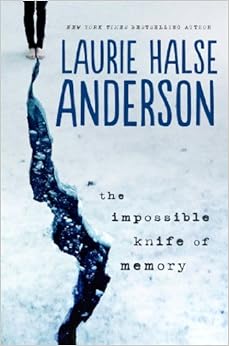Six years ago this February, I stood atop a mountain in Michoacan, Mexico and listened to the deafening sound of butterfly wings flapping. It sounds crazy, but standing amongst millions of black-and-orange butterflies you can actually hear the wings as they beat together. The monarch rise from oyamel trees en masse as the sun hits the branches, taking off for nectar and water. You step around thousands of butterflies puddling on the forest floor and still more float through the air above you.
As I stood there, surrounded by millions of monarch butterflies, I couldn’t help but think that Shakespeare was talking about the monarch overwintering grounds when he said, “this most excellent canopy, the air, look you, this brave o’erhanging firmament, this majestical roof fretted with golden fire”.
The forest canopy is alight with golden fire in Michoacan.
Today, my heart is breaking because the Mexican government and the World Wildlife Fund announced that “the migrating population has become so small— perhaps 35 million, experts guess — that the prospects of its rebounding to levels seen even five years ago are diminishing.”
We can’t lose this:
In 2005 I completed my student teaching with an inspiring cooperating teacher who was a member of the Monarch Teacher Network. During those first months of school I helped her and the third grade class raise monarchs, release them, and plant milkweed. We studied monarchs in language arts, geography, social studies, math, and science. Parents planted milkweed from seeds their children found. Students raised caterpillars they found in their own backyards. We stopped class to watch the “pupa dance” as a caterpillar transformed into a chrysalis. We stopped again when the butterfly, wet and crumpled, emerged from it’s chrysalis days later. I had never been so inspired and I immediately signed up for the summer workshop that my cooperating teacher had taken. That summer, I spent 3 days learning about monarch butterflies at a Monarch Teacher Network workshop and I’ve never looked back.
I’ve raised monarch butterflies in the classroom with third graders, sixth graders, and high schoolers. I’ve spoken about monarchs at schools and libraries. I stop on the side of the road to check milkweed and I hand out seeds to people I meet. My father and sister raise monarchs each summer, using the information I gained at the workshop. And each summer since then I have been a volunteer staff member at at least one Monarch Teacher Network workshop.
But in 2008 I was overcome with gratitude when I received a fellowship to Mexico, where I was given the chance to visit the overwintering grounds (You can read about it here). It was a life-changing experience and one I hope to repeat someday.
Now I don’t know if that will happen. Because the monarch population and migration has been depleted. At an all-time low, the population may be beyond the point of no return. Yes, weather plays a role in the cycle of the migration, but humans have a much bigger toll. Development has stopped the spread of milkweed, the only plant monarch caterpillars can feed on. GMOs have taken over land that milkweed naturally spread to. We aren’t paying attention and now we may lose the migration, one of the greatest migrations on earth, within a few years.
How can you help?
- Plant milkweed! Order some from the suppliers recommended by Monarch Watch, a fabulous organization.
- Stop taking such good care of your lawn. Seriously. It’s terrible for biodiversity. (See: John Green: Your Yard is Evil)
- Raise monarch butterflies in your classroom. Because ““In the end we will conserve only what we love; we will love only what we understand; and we will understand only what we have been taught.” ― Baba Dioum
- Bring the Monarch Teacher Network to your area! If you want to bring the workshop to your school, library, or nature center you can email bhayes@eirc.org or call 856.582.7000 x110. They go everywhere! Give them a call now, as they are scheduling workshops for this summer.
- Spread the word! We need this to go viral. We must protect the migration!
Filed under: monarch butterflies, monarchs | Tagged: butterflies, EIRC monarch teacher network, helping monarch butterflies, monarch, monarch butterflies, monarch teacher network | 1 Comment »







 alongside, taking care of him. Struggling with demons, haunted by what he saw in Iraq, her father spends his time moving from town to town, never staying in one place for very long. Hayley looks out for him, acting as his parent in a reversal of roles. But now they are living in her grandmother’s house and her father is determined to settle down so Hayley can go to school and graduate on time.
alongside, taking care of him. Struggling with demons, haunted by what he saw in Iraq, her father spends his time moving from town to town, never staying in one place for very long. Hayley looks out for him, acting as his parent in a reversal of roles. But now they are living in her grandmother’s house and her father is determined to settle down so Hayley can go to school and graduate on time.